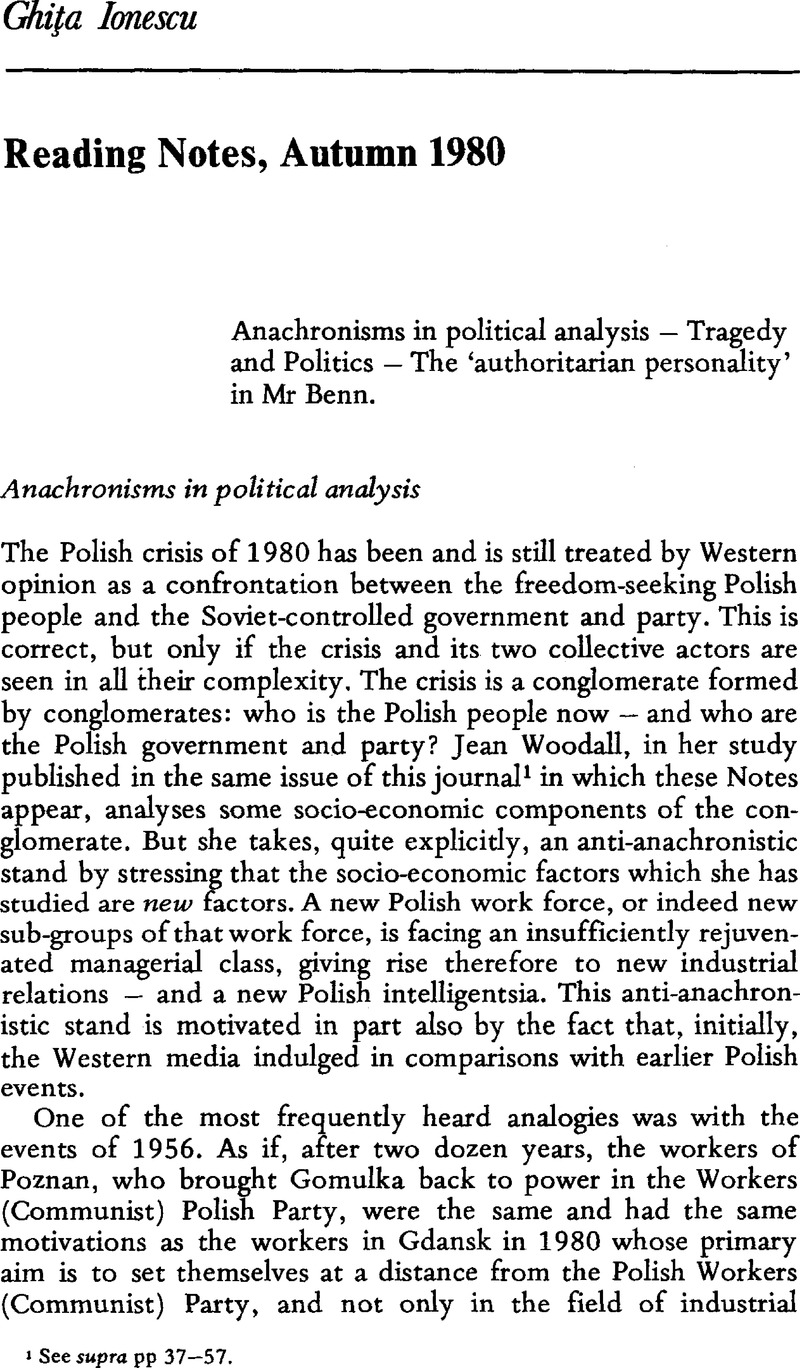No CrossRef data available.
Published online by Cambridge University Press: 28 March 2014

1 See supra pp 37–57.
2 ‘The potential leader, and leadership (General Moczar and the partisans) of a possible movement began by advertising themselves… putting themselves forward as a potential alternative to the party’ (p.218). ‘But it was obvious that Moczar’s aims were to try to set up a new organization. A faction with popular backing could provide perhaps, one day, an alternative to the party and become itself a new party’ (p. 232). Ionescu, Ghiza, The Politics of the European Communist States, London, 1967.Google Scholar
3 Ibid., p. 275.
4 Tadeusz Mazoviecki, editor in chief of the Catholic monthly Wiez, Andrzej Wielowiejski, Chairman of the group of Catholic intellectuals in Warsaw and Bogdan Cywinski, Editor of the Catholic monthly Znak ‐among others. It seems to me that the Western media have been inclined to attach greater importance in their reporting of the crisis, to KOR (the Social Self‐Defence Committee) and its leader Jacek Kuron, than to KIK (Club of Catholic Intelligentsia).
5 Jones, John, On Aristotle and Greek Tragedy, Chatto & Windus London, 1980.Google Scholar
6 Steiner, George, The Death of Tragedy, Faber, London, 1961 Google Scholar (now paperback).
7 Domenach, Jean‐Marie, Le retour du tragique, Seuil, Paris, 1967.Google Scholar
8 Vernant, Jean‐Pierre and Vidal‐Naquet, Pierre, Mythe et tragédie en Grèce ancienne, Maspero, Paris, 1972.Google Scholar
9 Frederic Nietzsche Die Geburt der Tragödie.
10 Aristotle’s Politics (1253a), ed. Sir Ernest Barker, OUP, p. 6. (My italies).
11 Jones, op. cit., pp. 54–55.
12 Benn, Tony, Arguments for Socialism, Penguin Books, London, 1978.Google Scholar
13 Adorno, T. W. et al: The authoritarian personality, New York, 1950.Google Scholar
14 Adorno, T. W.: ‘Politics and economics in the interview material’ in Adorno, T. W.: The Authoritatian Personality (op. cit.) p. 653.Google Scholar